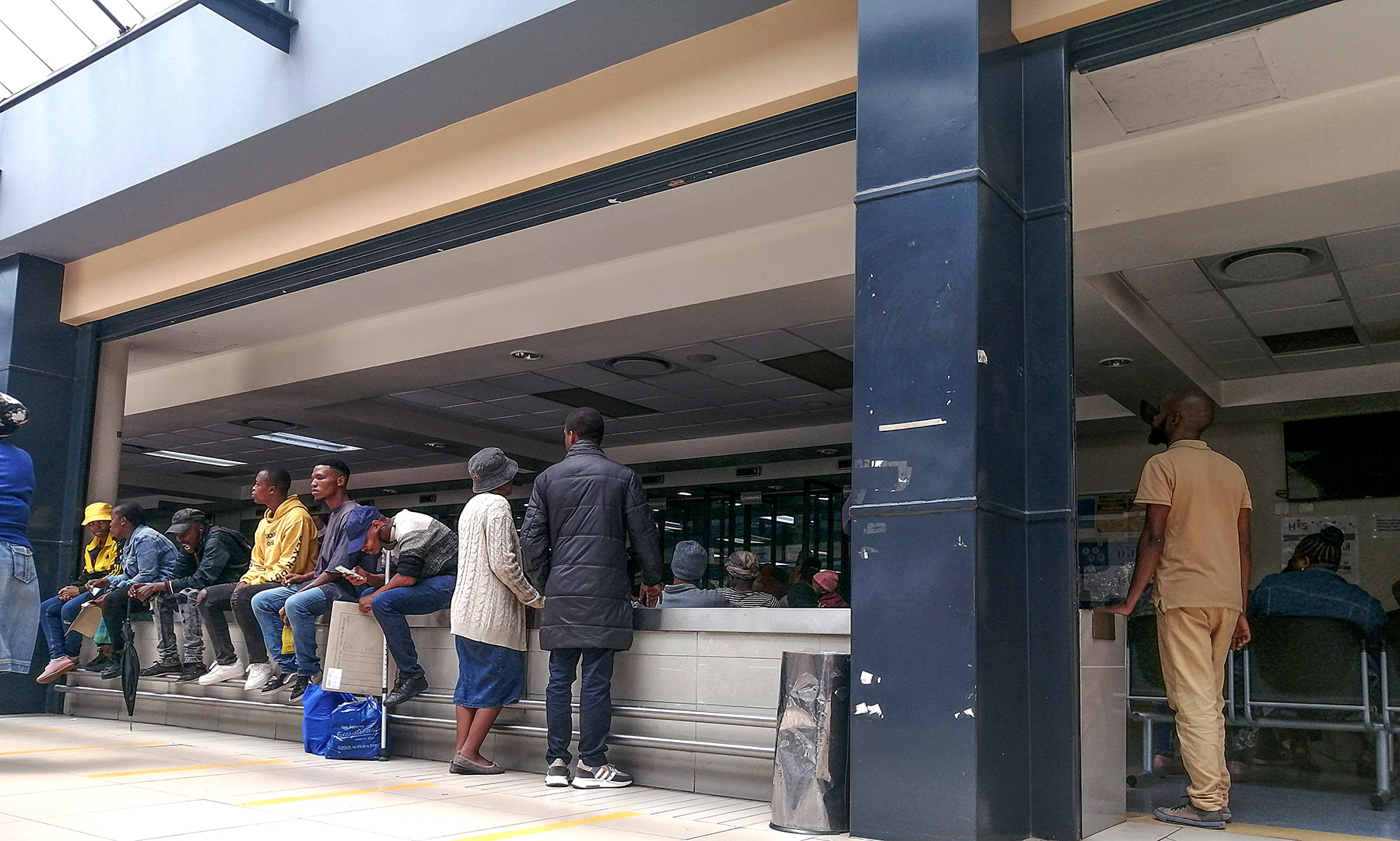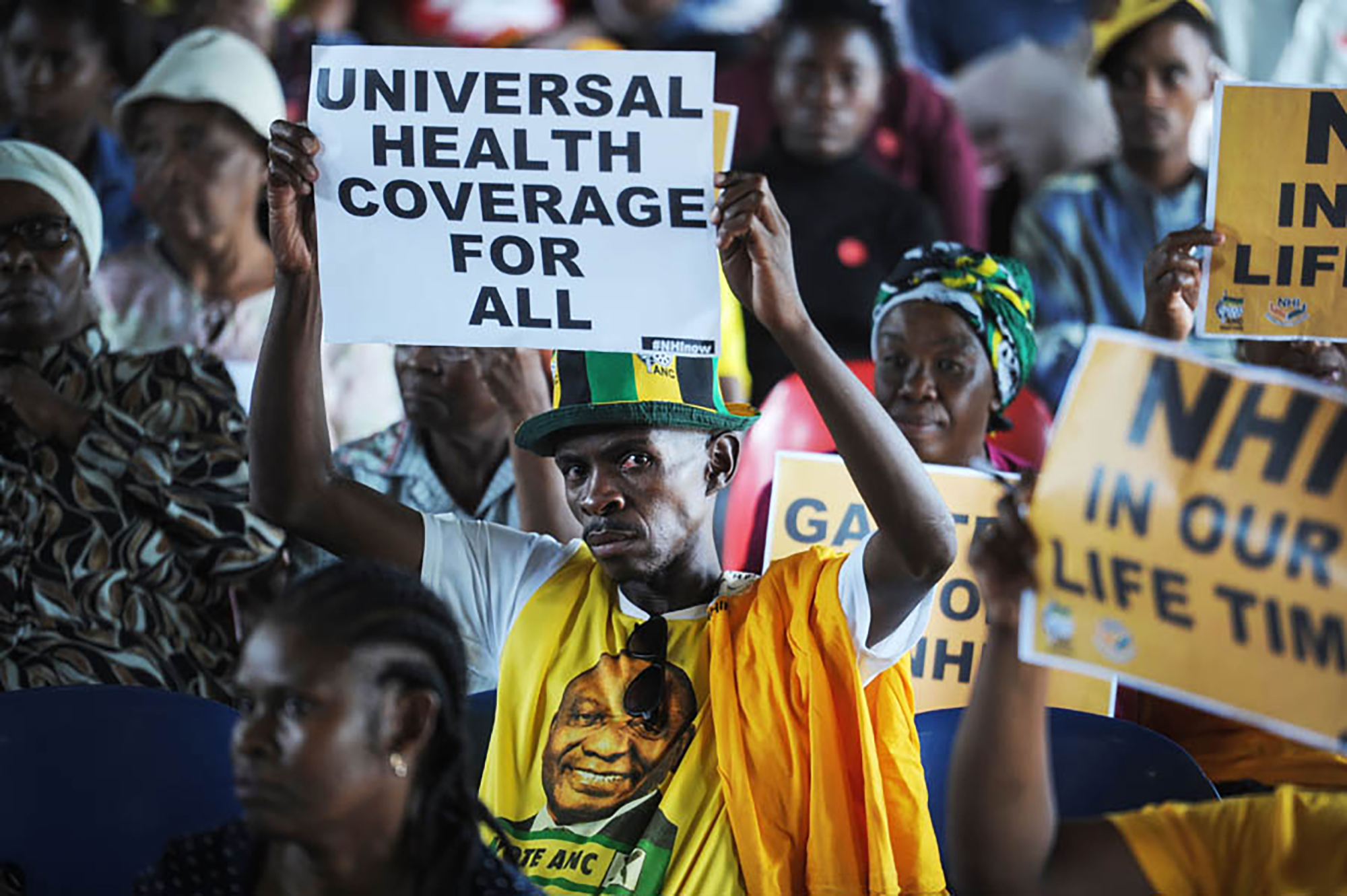The Universal Healthcare Access Coalition (UHAC) is pushing a proposal to reform the healthcare system in South Africa – one that differs from both the status quo, a system in “crisis”, and the National Health Insurance (NHI) Act, which UHAC describes as “fiscally and institutionally unimplementable”.
UHAC, which aims to enable strategic conversations on health system reform in the public space, says its report on proposed reforms offers “pragmatic, scalable and equitable solutions” to enhance healthcare access in South Africa.
“The NHI proposals themselves … have unfortunately become an obstacle to progressive health reform in South Africa… The proposals are not in harmony with the current health system, including both the public and the private subsystems, and are generally regarded as harmful to health access,” said Professor Alex van den Heever, chair of social security system administration and management studies at the Wits School of Governance, at a UHAC media briefing on Wednesday, 12 February.
 Patients wait at a dispensary at Chris Hani Baragwanath Academic Hospital in Soweto on 8 March 2023. (Photo: Bheki Simelane)
Patients wait at a dispensary at Chris Hani Baragwanath Academic Hospital in Soweto on 8 March 2023. (Photo: Bheki Simelane)
“As a consequence of the NHI process, no health systems reforms of any substance have been implemented since 2004.”
The UHAC reform proposal was jointly developed by the South African Medical Association, the Progressive Health Forum and the SA Private Practitioners Forum, and released in December 2024. The number of signatories to the proposal has since grown to 28, including the Radiological Society of South Africa, the Association of Palliative Care Centres and the Day Hospital Association of South Africa.
Dr Aslam Dasoo, health activist and member of the UHAC steering committee, said that the proposal had been submitted to President Cyril Ramaphosa.
“We were advised that it would go for comment to the Ministry of Health, and we were then subsequently advised that they had received comment, which went something like, ‘We have noted the report, but we cannot discuss these matters because it’s now sub judice’. We presume that’s related to the litigation against NHI,” Dasoo said.
Daily Maverick asked the National Department of Health for comment on the report but had not received a response at the time of publishing.
Read more: Everything you ever wanted to know about the NHI but were afraid to ask
Read more: After the Bell — the election hoax that is the NHI Act
Breaking down the reform proposal
In its proposal, UHAC notes that the current health system is polarised, with an underperforming public sector and an expensive private sector. It states that the NHI “does not materially depart from the weaknesses of the current system” but instead centralises control without resolving fundamental problems.
Central to the UHAC’s reform framework is a mixed funding model of medical scheme contributions and general taxes, with contributory insurance for higher-income households and tax-funded, free services for the poor. This better aligns with the country’s fiscal constraints and will ensure long-term sustainability, according to UHAC steering committee member Dr Mvuyisi Mzukwa, chair of the SA Medical Association.
 Patients and staff at Rahima Moosa Mother and Child Hospital in Coronationville, Johannesburg. (Photo: Spotlight)
Patients and staff at Rahima Moosa Mother and Child Hospital in Coronationville, Johannesburg. (Photo: Spotlight)
However, the proposal emphasises the need to improve governance in the public system and regulate the private system for cost efficiency and equity.
The UHAC report states, “It is also recognised that tax financed and contributory systems work differently and require well-functioning but distinct governance frameworks. Given this, effective government stewardship requires the development of interventions that recognise these differences while at the same time aligning them with overarching system goals.”
The UHAC proposes that healthcare funding, from taxes and medical aid schemes, and risk management, should be pooled at a national level to ensure equitable distribution of resources, while the purchasing of healthcare services should be decentralised for more efficient, localised decision-making.
Key interventions under UHAC’s proposal include:
- Decentralising decision-making for health service delivery through the establishment of an autonomous district health system and autonomous public hospitals;
- Establishing independent governance structures for provincial health services, health districts and hospitals;
- Introducing a publicly sponsored commercial medical scheme as a competitive alternative to private schemes to “strengthen healthy over unhealthy competition”;
- Progressively introducing mandatory medical aid scheme membership, beginning with higher-income groups and large employers;
- Improving cost control in the private sector through multilateral tariff negotiations, standard benefit packages, risk equalisation and social reinsurance (non-commercial publicly established reinsurance arrangements where primary insurers are mandated to contribute to a secondary insurer to cover a set of statutory benefits);
- Forming an independent organisation for pooling functions such as subsidy allocations, risk equalisation and social reinsurance.
In Wednesday’s briefing, Dasoo said, “We are health workers, answerable, accountable to society… We are going to put this [reform proposal] to [the people] through this process… and tell them, we have spoken to the government. We’ve got no response. We are showing you what we believe is the problem and how it can be resolved immediately. The NHI… has got too many difficulties for it to be anything useful for the country in the near and medium term.
“This is actually what should have happened from 2004 onwards.”
Van den Heever noted that there would be ongoing engagement in the health fraternity to “deepen” the frameworks in UHAC’s reform proposal.
“This is a consequence of a vacuum in coherent policy discussion in South Africa that essentially now needs to end,” he said.
NHI mired in uncertainty
In his State of the Nation Address (Sona) last week, Ramaphosa said the government would proceed with the preparatory work for the establishment of the NHI this year. According to Dasoo, this signalled that the crumbling state of healthcare would continue “while government tries to figure out how to fund and implement an unworkable NHI”.
Speaking at the Sona debate on Wednesday, Minister of Health Aaron Motsoaledi dismissed the “naysayers” against the NHI, stating that strengthening the public health system and implementing NHI were not mutually exclusive.
“Yesterday during this debate, Honourable MJ Cuthbert, a member of the DA, said that he is happy that NHI is not on the [Medium Term Development Plan]. Sorry sir, it is there,” said Motsoaledi.
Motsoaledi’s comments contradict recent reports that the NHI had been removed from the Medium Term Development Plan – the latest in a series of confusing contradictions around the future of the fund.
In the lead-up to Sona, a compromise appeared to have been reached between the ANC and DA, the two largest parties in the 10-party Government of National Unity (GNU), to amend a section of the NHI Act to protect medical aid schemes.
However, Motsoaledi later said that he was unaware of any such agreement.
Read more: Motsoaledi sticks to his guns on NHI while Steenhuisen confident of redraft
At the Sona debate, Motsoaledi said that the NHI was a health financing programme that covered everyone, regardless of their socioeconomic status.
“NHI is about money, it’s about how money is distributed with the whole population... That’s why the former director general of the World Health Organization, Dr Margaret Chan from Hong Kong … said NHI is an ‘equaliser between the rich and the poor’. That’s exactly why we’ve got the problem in South Africa. The moment you mention the rich going to be in the same place as the poor, people start getting stomach angst immediately,” he said.
Motsoaledi noted that the NHI would be implemented incrementally. He said the belief that such a funding model could be implemented only in “rich” countries with large tax bases was untrue. DM




 Patients and staff at Rahima Moosa Mother and Child Hospital in Coronationville, Johannesburg. (Photo: Spotlight)
Patients and staff at Rahima Moosa Mother and Child Hospital in Coronationville, Johannesburg. (Photo: Spotlight) 